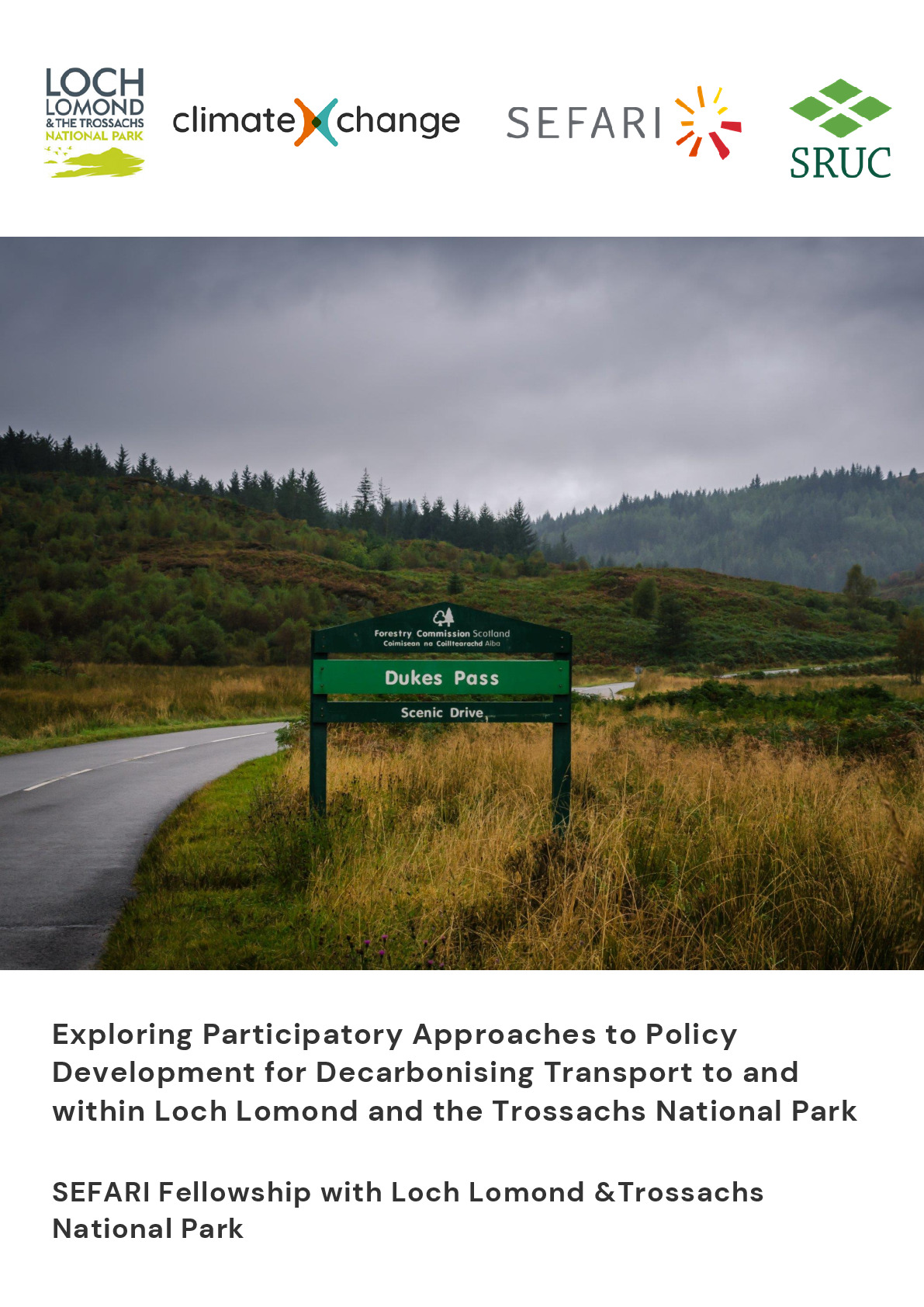Download
Description
The climate emergency presents a double challenge for public bodies as they reduce their greenhouse gas emissions and learn to adapt to the already changing climate. The Scottish government is committed to deliver a Just Transition to Net Zero by 2045 meaning that public entities must come up with innovative ways to meet these targets.
The Loch Lomond and the Trossachs National Park covers a largely rural area in the west of Scotland and want to address the ‘wicked issues' of rural car dependency and carbon-intensive travel to LLTNP.
This research explores the evidence for an inclusive and user-led approach that might be developed using participatory policy development approaches. The findings are not exhaustive due to the scope and time of this fellowship but are key in starting a conversation about best practices in stakeholder engagement in the national park.
Key findings from this report include:
- There is a clear willingness to move beyond traditional consultation methods towards more creative, deliberative co-design methods.
- The most effective methods for stakeholder engagement must be developed on a case-by-case basis, reflecting the desired outcomes and the available time and capacity of stakeholders and park staff.
- There is potential for the LLTNPA to implement deliberative processes which can act to both tackle the issue at hand while creating an opportunity for deeper learning and cultural shift amongst stakeholders.
- It is crucial to understand the unique values and interests of all stakeholders and the complex relationships between them.
- Combining different approaches can foster collective learning and lead to more inclusive and robust policy solutions to both immediate and larger scale issues.
- LLTNPA could develop an internal ethos and protocol around best practices in stakeholder engagement informed by both the findings in the literature and the rich experiences of park staff.
- A strategic framework could be developed to help guide when stakeholder engagement is most pertinent and outline the most effective methods for engaging stakeholders on a variety of strategic planning issues.
- Approaches should cater to the place-based needs, values and interests of a diverse range stakeholders and be sensitive the power-dynamics that exist between entities.
Findings from this report and future engagement efforts by the park can help inform best practices for wider climate policy engagement in Scotland.
